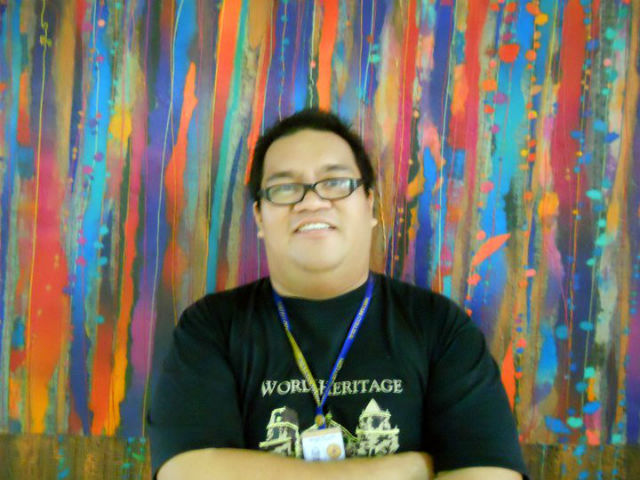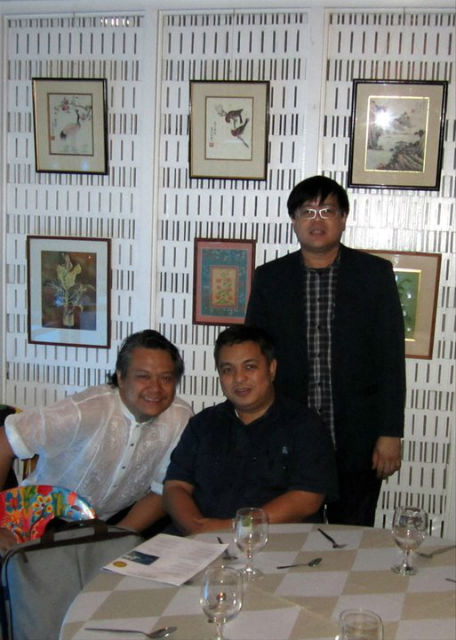ADVERTISEMENT
Filtered By: Lifestyle
Lifestyle
How to win a Palanca
By RALPH ANGELO TY
As midnight of April 30 approaches, hundreds, possibly thousands, of envelopes and emails will be swamping an office on the 10th floor of the One World Square Building in Taguig City.
The office does not belong to a pop star. Nor is it a sweepstakes draw center, either.
But to their senders, the letters might as well be lottery tickets.
The office, after all, houses the Carlos Palanca Memorial Foundation, which is once again accepting entries for the country’s most prestigious literary contest.
Established in 1950, the Carlos Palanca Memorial Awards for Literature is the country’s longest-running literary competition. It is also the most coveted literary prize in the country, drawing anywhere from 700 to 1,000 entries each year.
The foundation received 1,160 entries for last year alone.
Winning is tough, and for many writers, it goes beyond the cash prize. Winning means a validation of their work, and for some, it means a step toward joining the ranks of the country’s literati.
A few past awardees share advice on how to beat the competition.
Write for passion
For Dr. Jose Wendell Capili, a Palanca awardee and longtime professor of creative writing and comparative literature at the University of the Philippines, a sure step to win a Palanca is not to think about winning it.
“Do not write to win a Palanca or any other literary prize. Write because you want to share something that may connect with other people,” says Capili, whose essay about expatriate themes in Philippine poetry won in 1996.
Capili, who has also authored several publications and served in various administrative positions in UP, adds, “If you keep on writing the best way you can, recognition will come later."
Playwright John Iremil Teodoro echoes Capili, saying that prizes are the wrong motivations for writing.
“Write about what you really know and are passionate about,” adds Teodoro in an email interview.
Initially a biology graduate, Teodoro took a master's degree in fine arts major in creative writing and wrote his first full-length play for a class, which won in 1997. He has also won a National Book Award for Non-Fiction from the Manila Critics’ Circle.

John Teodoro is a biology graduate-turned-award-winning-playwright. Photo courtesy of John Teodoro
'Happy' manuscript
Capili, citing his mentor, fictionist Rogelio Sicat, says that any prize-winning manuscript by a Filipino writer “must have a strong Philippine subject-position.”
For Teodoro, language is important. “Study the art of writing. Write in the language that you know best,” he explains.
Capili recounts some of the tips he learned from his other mentors―from the late National Artist Francisco Arcellana: “Write something that only you and you can write about," and from National Artist NVM Gonzales, a winning piece “should have an interesting premise.”
For poet-critic Gemino H. Abad, Capili adds, you should only submit a version of the manuscript that “makes you happy.”

Palanca awardees who are all active in the academe (L-R): Dr. Vim Nadera, Dr. Michael Coroza, and Dr. Jose Wendell Capili. Photo courtesy of Dr. Capili
Judges
Eight-time Palanca awardee Dr. Michael M. Coroza, meanwhile, relates that winning a prize in the long-running literary contest also involves other factors, such as the judges.
“May kani-kaniya kasing hinahanap ang mga hurado at suwerte mo kung ang hinahanap nila ay nasa akdang isinali mo” (Each of the judges look for different things and you’re lucky if they find what they’re looking for in your work), Coroza explains, relating that in 2001 when he won first prize in the Filipino poetry category, the three poets who served as judges were his “idols.”
Coroza, who also won in the Filipino short story for children and Filipino essay categories, adds that the identities of judges are kept secret until the day of the awarding ceremonies.
Leslie Layoso, administrative assistant at the Carlos Palanca Memorial Foundation, relates that a separate board reviews and deliberates nominations for judges, who are different for each of the categories. Once selected, the judges are given until July 30 to submit their scores.
Fear not
Joshua Lim So, who won first prize in the English full-length play and third in the Filipino counterpart category last year, says that the best advice he can give aspirants is to overcome their fear.
“Marami diyan natatakot na mag-submit, baka hindi manalo” (A lot of them don’t submit because they fear they won’t win), So relates. His winning one-act play “Portrait” in 2007 was staged by Repertory Philippines.
So, now a restaurateur, advises all writers to just keep submitting their work. “Wala namang mawawala kung mag-sa-submit kayo. Sabihin niyo na lang na nag-submit kayo 'pag nanalo kayo. (There’s nothing to lose in submitting your work. Only tell people you’ve submitted once you’ve won)."
Coroza agrees. “Ayon nga sa isang matandang kasabihan, ang umaayaw ay hindi nagwawagi at ang nagwawagi ay hindi umaayaw. Gayunman, hindi tulad sa sugal, walang nawawala sa pagsali at pagkatalo sa Palanca. (Like they say, quitters never win, and losers never quit. However, unlike in gambling, there’s nothing to lose in joining the Palanca)," he says.
Even if a writer doesn’t win, he still will have produced a manuscript, which, Coroza adds, could eventually get published.
Teodoro says winning or losing a contest does not change the quality of one’s work.
“My mentor Cirilo F. Bautista told us… even if your work wins a Palanca award, it will not improve if it is badly written, and if your work loses, it is still a great piece if it is well-written,” Teodoro says. — ELR/KG, GMA News
Tags: palanca, writingtips
More Videos
Most Popular




